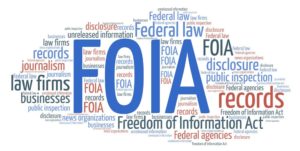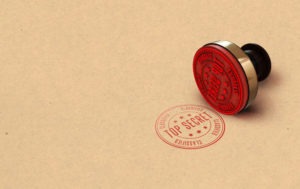
Want to learn how to manufacture invisible ink, or the trajectory of the strange light seen in the sky over Tashkent in 1952? Well, now you can find out with a simple online search.
The Central Intelligence Agency has posted nearly a million declassified documents, totaling nearly 13 million pages, to a searchable online database that is open to the public.
The publication is in part a response to a Freedom of Information Act request filed by the news site MuckRock in 2010. The CIA originally estimated it would take them 28 years to get all the files online, but later revised their estimate and were able to post the database this week. The database is called the Freedom of Information Act Electronic Reading Room.
Previously, the documents were available to the public, but could only be accessed through four computers at a database center in Maryland. Ironically, searches and printouts on those computers were monitored.
Sign up for our free newsletters
Subscribe to NPQ's newsletters to have our top stories delivered directly to your inbox.
By signing up, you agree to our privacy policy and terms of use, and to receive messages from NPQ and our partners.
Now, of course, Google is watching, but at least one doesn’t have to travel to Maryland to access the material.
The database includes everything from the daily briefings received by Presidents Nixon and Ford, to reports on unidentified flying objects, to research on magic healers and other potentially supernatural things that were submitted to the CIA for investigation. There are personnel files and estimates of Soviet ballistic missile strength, as well as more eclectic items like a poster from the Buffalo Bill Wax Museum. Documents are generally declassified after 25 years, so material from more recent administrations is not available.
Turning the CIA archive into a genuinely public resource seems a fitting cap to this election season, which has tossed the American public from one secret reveal to another. The obsession with secrets and conspiracy sounded paranoid at times, and the resulting rhetoric created adversaries of previously cooperative (or at least neutral) parties. The FOIA database won’t answer questions about this election for another couple of decades, but the gesture of information sharing is not to be missed.
The trove of documents is likely to be of great value to researchers, conspiracy theorists, and analysts everywhere. If the CIA keeps the database updated as more documents become declassified over time, it could be a valuable resource for hindsight analysis of current events. For now, we wish the history buffs a joyous day digging into this bonanza of government record.—Erin Rubin













